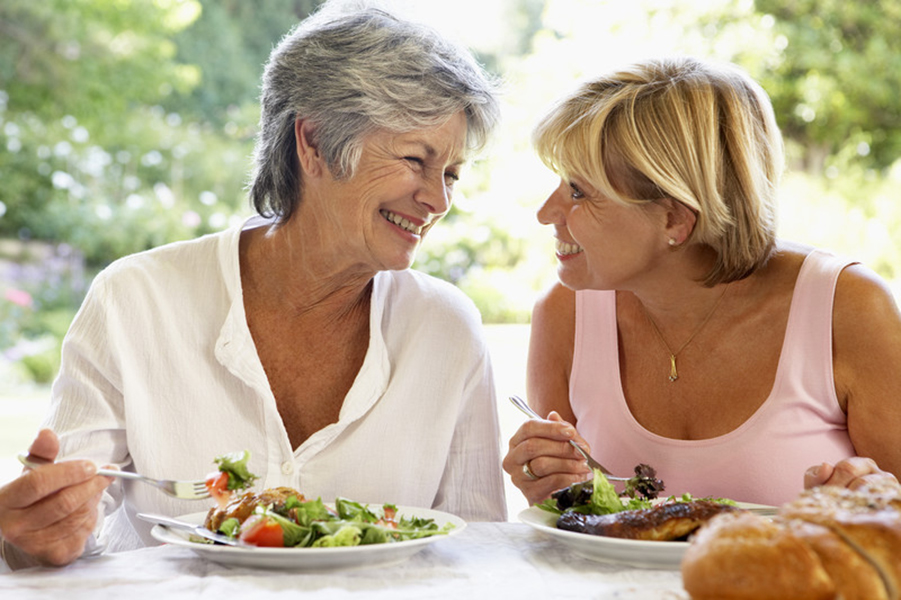Foodborne Illness and Seniors: Proactive Protection
Health Eating for Seniors | September 15, 2021

What Every Senior in Vancouver, BC, Needs to Know About Preventing Foodborne Illness
Foodborne Illness | In light of recent safety measures and regulations shaped by the global pandemic, reducing the threat of bacteria, viruses, and parasites contaminating our food has become more important than ever. However, contracting foodborne illnesses remains a widespread occurrence. Statistics Canada reports that 1 in 8 Canadians are affected by a food-related illness.
Although foodborne illnesses are no laughing matter, seniors can be more exposed to developing food-related health issues. They also typically require more time to recover.
Why Are Seniors More Vulnerable to Foodborne Illness?
Numerous changes associated with aging contribute to the weakening of the immune system. For this reason, the body’s natural defence system is no longer as efficient in fighting off illnesses. At the same time, vital organs such as the liver and kidneys are working at reduced capacity and need more time to break down and get rid of toxins from the body.
Another problem stems from prescribed medications most seniors have to take to keep chronic conditions under control. Many meds for common conditions such as type 2 diabetes or cardiovascular diseases have side effects that can further deplete our immunity. Because of this, recovering from any food poisoning is much harder for seniors.
Three Tips for Protection Against Foodborne Illness
Preventing foodborne illnesses is rather simple. In most situations, seniors only need to use common sense. Likewise, it is also important for older adults to stay informed and incorporate certain changes into their everyday lives. Consider the following:
Tip #1 – At the grocer’s:
Advise your loved one to inspect packaging and expiration dates on perishables before purchase. Raw meat, seafood, and poultry should be carried in a separate plastic bag so that the juices from these products don’t mix with other groceries in the cart.
Tip #2 – Handle and prepare foods responsibly:
Fresh fruit and vegetables should be properly washed before chopping or preparing. Hands should be thoroughly washed with soap and warm water before touching food. To avoid cross-contamination use different cutting boards. Checking the internal temperature of cooked food with a special food thermometer is also a good idea. After meals, remind your loved one to put all perishables away.
Tip #3 – When eating out:
Seniors might want to avoid ordering foods with uncooked ingredients when eating outside their homes. These are usually easy to spot on the menu but check with the waitress or waiter to confirm.
The Best Senior Home Care Provider in Vancouver, BC, is Comfort Keepers®
Many families prefer Comfort Keepers® when arranging senior home care services for a loved one in or around Vancouver, British Columbia.
If you are concerned about the health and well-being of your aging loved ones, we can help with 24-hour care. Comfort Keepers Vancouver also provides home care services like respite care, overnight care, Alzheimer’s disease and dementia care, personal care, and more!
Comfort Keepers® Vancouver Can Help with Companion Care and Interactive Caregiving™
Personal and empathetic care starts in the heart and allows us to meet our clients’ needs. Comfort Keeper’s philosophy is to elevate the human spirit, and our caregivers ensure your loved one experiences a better quality of life.
Trained caregivers help provide our senior clients with personal home care to help maintain the highest possible quality of life, keeping them happy and healthy at home. Our Interactive Caregiving™ delivers a system of care that addresses safety, nutrition, mind, body, and activities of daily living (ADLs).
Bring The Best Home Care Assistance for Seniors Right Where You Live with Comfort Keepers®
Comfort Keepers® Vancouver is proud to provide elder care in homes throughout Vancouver, keeping seniors safe in their homes. We provide home care for the seniors of Vancouver and the surrounding areas of Burnaby, Langley, Maple Ridge, and Richmond. Please call (604) 689-8609.
Personal Care and Senior Homecare in Vancouver, BC
Learn more about our unique service, which offers personal care, companionship care, palliative care, and end-of-life care by contacting the Comfort Keepers® Vancouver office.
Accredited and Quality Respite Care Available 24/7 for British Columbia Families
Accreditation Canada has awarded Comfort Keepers® Vancouver with Exemplary Standing. This designation is only achieved after an organization’s policies, procedures, and processes undergo a thorough evaluation by industry experts to ensure they meet or exceed the stringent quality standards set by Accreditation Canada for Home Care companies.
Individualized Home Care Options
Long-Term Home Care, 24 Hour Home Care & Short Term Care Options Customized for You







